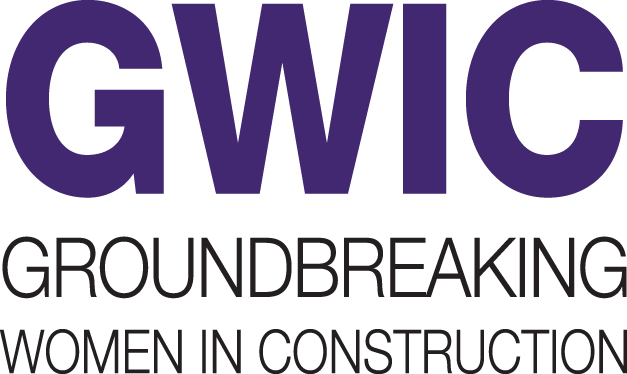As the construction industry prepares for a potentially record-setting growth spurt past the pandemic, employers will need to reach deeper to fill expected major workforce and leadership gaps, with the sector's transformation ahead energizing women executives May 4 at the 2021 Groundbreaking Women in Construction virtual conference.
“The world post-pandemic looks pretty good. We see a strong recovery as the virus gets under control,” said conference keynote presenter Jamie Cook, a managing director of investment firm Credit Suisse and lead research analyst in its industrials group, which includes construction and equipment.

The firm predicts 6.5% GDP growth in 2021, “probably the strongest we’ve seen since 1984,” she told the audience at the event, which continues through May 6 with about 1,000 registered attendees. It is sponsored by ENR and law firm Peckar & Abramson.
Cook added that the 3% real GDP growth predicted in 2022 “is still a very healthy economic environment.”
"The world post-pandemic looks pretty good. We see a strong recovery as the virus gets under control, with 6.5% GDP growth [Credit Suisse] predicts the strongest we've seen since 1984, and 3% growth in 2022 still a healthy economic environment." —Jamie Cook, Managing Director, and lead construction sector analyst, Credit Suisse
The analyst said industry C-suite executives “have a higher level of confidence” that a federal infrastructure bill will pass, with Credit Suisse estimating enactment could come by year end. But she cautioned that “the industry is not prepared for this,” with ongoing unemployment benefits still keeping industry employees from returning to their jobs.
Noting that skilled labor development "is not an area the US has invested in," she cited industry's own training and retraining efforts but also said future industry merger and acquisition activity will tie to labor needs "to be ready for growth ahead," particularly with larger projects set to be core to the upcoming infrastructure program.
Despite challenges, "if dollars are allocated to the right places, it would support multi year industry growth," Cook said.
According to Cook, a public and private sector construction rebound could bode well for more sector firm investment, with investors also weighing whether and how companies meet stated targets for workforce diversity and climate change reduction, among other environmental, social and governance (ESG) commitments. “Firms that meet ESG are getting more attractive valuations,” she said.
Investors and analysts also are watching development of company bench strength below the C-suite and keeping future leaders motivated, said Cook. "It's important to me as I evaluate companies," she said.
Noting similar diversity challenges in the financial field, Cook said pandemic workplace changes "makes me optimistic" about future career benefits for women in AEC fields as well. "I never thought you could be productive working from home. The pandemic has proven me wrong," she said, noting faster business interactions "rather than global travel. It gives everyone flexibility, especially for women."
Cook urged younger employees whose traditional workspace connections have suffered, to seek out mentors, "ones that you develop naturally, rather than because the company says so."
While overhead costs will return with more normalized business patterns, the analyst said "everyone is revisiting the business model" to determine the level of savings "that will be structural."
'Period of Inflection'
A panel of women chief executives of private and public sector industry employers also noted the pandemic-pushed ESG momentum and structural changes ahead.
"Those who hold the money are pushing and asking questions. What surprised us was the momentum [ESG] picked up during the pandemic. We need to define what that means for us, our businesses, our employees and the communities we work in." —Susan Angyal, CEO, ERM North America
“Those who hold the money are pushing and asking questions,” said Susan Angyal, North America CEO for London-based environmental consultant ERM. “What surprised us was the momentum it picked up during the pandemic and the level of interest now." ESG issues “will play a much bigger role in decisions relating to new capital projects,” she said. "We need to define what this means for us, our businesses, our employees and the communities we work in.
Kristina Swallow, director of the Nevada Dept. of Transportation and a former president of the American Society of Civl Engineers, noted the start of a "real period of inflection for the industry," particularly in the transportation sector. She said participants must "create opportunities to think differently" about projects ... "to insure we are engaging with adjacent communities, not just with those driving through."
Ann McNeill, CEO of Florida-based MCO Construction, said coping with the pandemic "has helped me as a business person to refocus on how we interact with people." Also founder and chair of the National Association of Black Women in Construction, which empowers black women as industry entrepreneurs, small business owners, government professionals and leaders, urged GWIC attendees to develop an expertise in a key industry niche and "become known."
Gender Issues in Exec Career Paths: New Research
Even so, University of Maryland civil engineering department researchers Qingbin Cui, a professor, and PhD candidate Paul J. Hickey, an industry business strategy consultant and former AECOM business development director, found that women still face hurdles in gaining leadership status, according to recent study results they presented.
Based on a sample of 3,015 companies, they found that women held more positions on the way to senior jobs than men and have more advanced degrees. but fill just 14.2% of total leadership positions.
Their research, which cross-referenced data gathered from companies ranked on ENR’s Top 400 Contractors list and individual professionals’ LinkedIn profiles, indicates that women work for an average of 4.1 different employers compared to men, who work for an average of 2.7—indicating that women change jobs more frequently than men to reach the executive level.
The study profiled information for 200 women executives and 1,200 men.
According to the research, 53.9% of woman in contractor leadership roles had an advanced degree while the same was true for only 31.2% of men. Women executive co-panelists Patricia Zugibe, CEO of Holt Construction, who has a law degree. and Yvette Stevens, vice president and director of economic inclusion at Gilbane Building Co., who is a professional engineer with an MBA, noted the advanced degrees as factors in their career progression.
The research also found that women cultivate larger professional networks than men. They had 14% more followers on LinkedIn and 64% more recommendations.
“Great diversity creates better business outcomes, and and a better and more inclusive working environment,” said Hickey.
But said Kasie Mathena, vice president at AECOM Hunt: “More stars need to align for women to be promoted to leadership roles."







